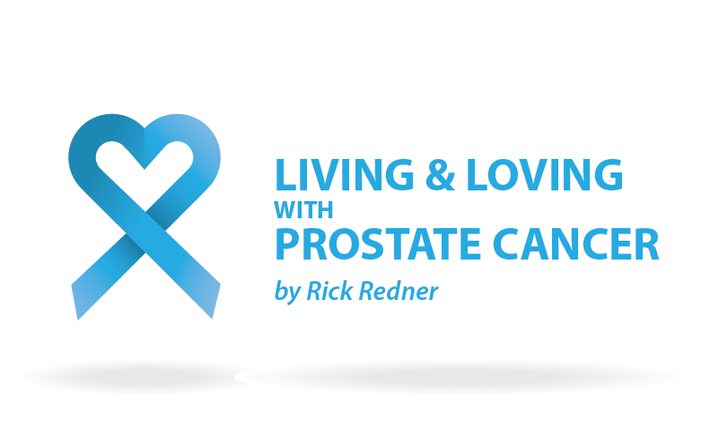
Years ago a dear friend was diagnosed with kidney cancer. His cancerous kidney was surgically removed. After surgery, he thought he was cured of cancer. About three years later he developed severe back pain. His doctor referred him to physical therapy. Three months later his pain worsened. Further diagnostic testing revealed that cancer had spread throughout his body. He died a few months later. I was devastated.
The life lesson I learned from this tragedy was this: If I’m ever diagnosed with cancer, never go off the grid. I made a promise to myself to get tested regularly in the event I was diagnosed with any form of cancer.
It’s been six years since I was diagnosed with prostate cancer. My yearly PSA test occurs in the month of April. I have the order for my lab test in my car. No one could be more surprised than me to discover that my deepest desire is to skip the test and go off the grid. My reaction makes no sense. I know full well the earlier a recurrence is detected, the greater odds I have of surviving it. Knowing this, or remembering what happened to my friend, has no impact on my desire to skip the test and go off the grid.
As I tried to understand my resistance to my yearly PSA testing, I’ve come to this conclusion: I’ve grown weary of living with the reality that the possibility of a recurrence of cancer is always hanging over me. I mistakenly thought going off the grid would allow me to deny this reality.
As I researched the fear of recurrence; I discovered there are hundreds of thousands of articles written about this topic.
In an article titled Waiting for the Shoe to Drop: Managing Your Fear of Recurrence by Northwestern Medicine, they found that:
Fear of recurrence was reported by 22-74% of people with a history of cancer, depending on how you ask the question. And one-third of cancer patients experienced recurrence fears 10 years after their diagnosis. They also found that certain events trigger or activate this fear.
According to the article by Northwestern Medicine, common triggers for fear of recurrence are as follows:
- Upcoming medical appointments; oncology visits, cancer screening
- Anniversary of cancer diagnosis or treatment
- Hearing about another person’s cancer or a person who died from cancer
- Any mention of cancer
- Side effects from past cancer treatment
- Unexplained physical symptoms
I wasn’t surprised to discover PSA screening could trigger the fear of recurrence. I was surprised the way my fears affected me. I thought I’d experience anxiety and sleep loss. I never expected I’d be fighting the urge to skip the test and go off the grid. As I wrote the previous sentence the phrase “What you don’t know can kill you” popped into my mind.
I love my wife and family too much to skip my PSA test. I discussed my resistance to testing with my wife, and the men who follow my Facebook page. I’m glad I did. If your fear of recurrence is interfering with the quality of your life, causing intrusive and unwelcome thoughts, loss of sleep, or leading you to skip or avoid testing, I urge you to get support. Speak with someone about this. You can join an online or face-to-face support group. Don’t allow the fear of reoccurrence ruin your life.
When I finish writing this column I’m making my appointment for my yearly PSA test.
If you or someone you love is coping with cancer, how are you dealing with your fears of recurrence? If you’re willing to share your experiences I’d like to hear from you.
***
Note: Prostate Cancer News Today is strictly a news and information website about the disease. It does not provide medical advice, diagnosis, or treatment. This content is not intended to be a substitute for professional medical advice, diagnosis, or treatment. Always seek the advice of your physician or other qualified health provider with any questions you may have regarding a medical condition. Never disregard professional medical advice or delay in seeking it because of something you have read on this website. The opinions expressed in this column are not those of Prostate Cancer News Today, or its parent company, BioNews Services, and are intended to spark discussion about issues pertaining to prostate cancer.


“I know full well the earlier a recurrence (in PSA) is detected, the greater odds I have of surviving it.”
How do you “know” this?
Usually, the earliest phase you find a cancer, the greater is the opportunity for treatment success. For example treating prostate cancer when it’s confined to the prostate is very different than treating it if it’s spread to your bones.
Everyone got to be their own advocate in fighting their disease. I like to catch the rise in PSA ASAP so I can knock it down when it’s “small”. Like when you are fighting someone, you’d like to fight someone small instead of a bigger opponent. It’s easier to knock it out. I do my PSA often. Not once a year. It could be doubling and tripling every month.
This is timely. My very high risk prostate cancer, treated with radiation and hormone therapy, is now giving signs of recurrence. Or not. Will know more in May from the next PSA test. With a 3 month doubling time, if it is recurring it is doing so at a frightening pace. On the other hand, it has a good chance of just leveling out to a steady post-radiation level.
It is very unsettling, almost to the point of obsession. I have read countless studies, none very helpful. I’ve done a lot of math, none very helpful. Variations within the test’s error limits make tremendous prognostic differences. No one knows, no one can help.
I just have to wait it out. A marathon at a snail’s pace. That alone stresses me out. If I would have known, if I would have had the post-treatment PSA tests as the ultra-sensitive type, then maybe the data would be more useful. As it is, I just have to wait.
My surgery was 3 years ago, since then all was well until last June when my PSA took a small increase. In October it had doubled and the plan was to start treatment before Christmas. My PSA has levelled off and they have put my proposed treatment on hold until it takes a rise again. Point is that I had it in the back of my mind for the first 2 1/2 years but now the uncertainty has ramped up and waiting for the inevitable is painful. I would never have thought that I would want to get treatment, but now I think I just want it to be over and done with.